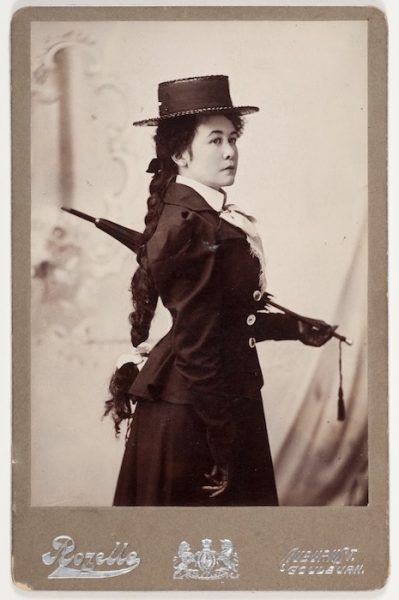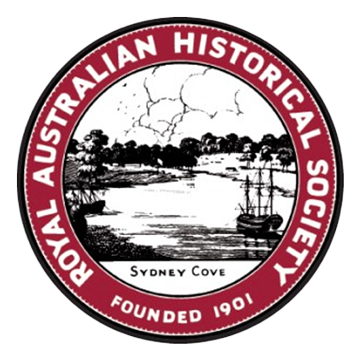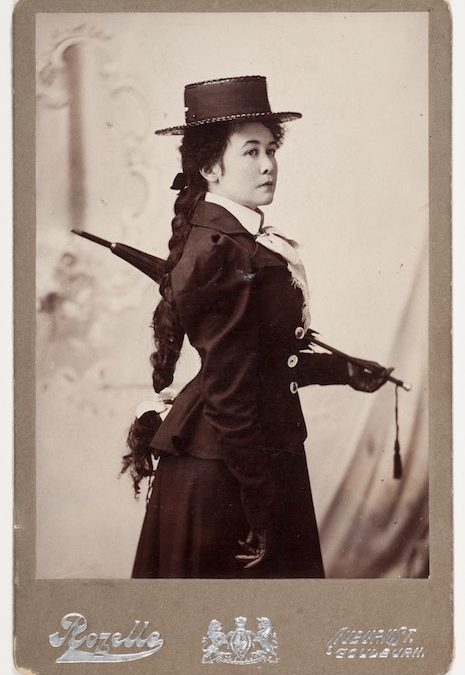Written by Elizabeth Heffernan, RAHS Volunteer
To celebrate Women’s History Month, the Royal Australian Historical Society will highlight Australian women that have contributed to our history in various and meaningful ways. You can browse the women featured on our new webpage, Women’s History Month.
The Miles Franklin Literary Award is Australia’s most prestigious literature prize, awarded every year to the most outstanding novel depicting Australian life in any of its phases. The Award is named after Stella Maria Miles Franklin, known simply throughout her life as ‘Miles’ – a tribute to her illiterate convict ancestor, Edward Miles.

Miles Franklin, author – portrait, 1901, Rozelle, Auburn St. Goulburn [Image courtesy State Library of New South Wales, FL3238498]
Much like her protagonist, Sybylla Melvyn, Miles was born in 1879 and grew up on her family station in the Brindabella Valley in NSW. A gifted child, Miles was encouraged in her literary passions by her family, private tutor, and teachers at Thornford Public. Though it was a happy childhood, Miles was always conscious of the restrictive domestic role her mother Susannah was forced to play: “I have never seen a like combination of courage, industry and organising ability – (wasted).” [2] Miles was determined not to waste her own considerable talents.
Miles’ first published piece of writing appeared in the local newspaper when she was sixteen. Known by her family and friends as Stella, Miles first used the now-famous moniker in two short pieces written in 1896. [3] Like many female authors before her, Miles had come to find the value of employing a masculine name in the patriarchal world of publishing.
The first manuscript of My Brilliant Career was completed in March 1899 when Miles was not yet twenty. Rejected by local publishers numerous times, Miles approached poet Henry Lawson for aid. Lawson was so impressed by the book he sent it off to a publisher in London. [4] Printed in April 1901 and making its way to Australia by September, My Brilliant Career sold over 1000 copies by the end of the year, an astonishing statistic at the time. [5]
Heralded as Australia’s “comet of wonder,” fame did not come easily for Miles. [6] She retreated from the literary world following the rejection of subsequent manuscripts and failed to make a career out of her brief foray into journalism. It was only upon her departure from Australia to America in 1906 and later Britain that Miles would find her voice again. After aiding in the war effort overseas, Miles published a number of lesser known but still commercially successful works, including Prelude to Waking, Old Blastus of Bandicoot, and All That Swagger, which won her the S. H. Prior Memorial Prize in 1936. [7]
Miles re-entered the Australian literature scene in the 1930s and remained an active participant for the rest of her life. Never marrying – she considered it “rabbit” work – Miles instead devoted her time to writing, collaborating, sponsoring young Australian authors, and lecturing at the University of Western Australia in 1950. [8] Upon her death in 1954 she bequeathed her estate to establish an award in Australian literature, first given in 1957 to Patrick White for Voss.
Though she lived a life full of as many rejections as successes, Stella Miles Franklin remains one of the country’s foremost fiction authors. In her early admissions of her first manuscript to publishers Angus & Robertson, Miles wrote: “Nothing great has been attempted”. [9] She was correct – something brilliant had been achieved.
References:
[1] Dr Rachel Franks, ‘Miles Franklin,’ State Library of New South Wales, <https://www.sl.nsw.gov.au/stories/miles-franklin>, accessed 20 March 2019.
[2] Miles Franklin writing about her mother in her diary, 13 June 1939, quoted in Franks, ‘Miles Franklin’.
[3] Franks, ‘Miles Franklin’.
[4] Jill Roe, ‘Biography – Stella Maria Sarah Miles Franklin’, Australian Dictionary of Biography, <http://adb.anu.edu.au/biography/franklin-stella-maria-sarah-miles-6235>, accessed 20 March 2019.
[5] Franks, ‘Miles Franklin’
[6] Ibid.
[7] ‘S. H. PRIOR MEMORIAL PRIZE’, The West Australian, 22 July 1936, p. 16.
[8] Roe, ‘Biography – Stella Maria Sarah Miles Franklin’.
[9] Letter from ‘S.M.S. Miles Franklin’ to publishers Angus & Robertson, 30 March 1899, quoted in Franks, ‘Miles Franklin’.


0 Comments